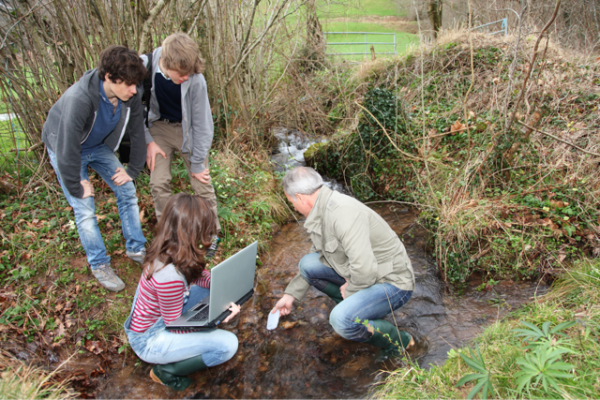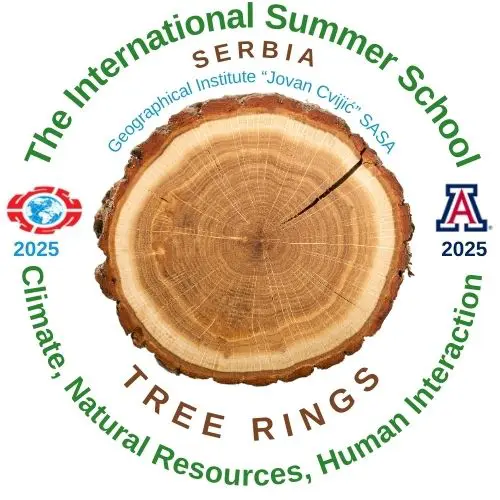
Utrecht, Netherlands
Geometry
When:
11 August - 22 August 2025
Credits:
3 EC
Read more
Geo Sciences Summer Course
When:
10 June - 14 June 2025
School:
University of Pisa Summer School
Institution:
University of Pisa
City:
Country:
Language:
English
Credits:
3 EC
Fee:
750 EUR


Wetlands and Groundwater-dependent ecosystems (GDEs) are important natural systems that contribute to ecological and human well-being through the provisioning of ecosystem services such as supporting biodiversity, providing base flows to rivers, water purification, water supply and recreational opportunities. The Mediterranean basin hosts numerous inland and coastal GDE. However – despite their uniqueness – they are increasingly subject to anthropogenic pressures, resulting in degradation of their natural properties. These threats include both shortlived processes (e.g. over pumping and contamination) and long-term ones (e.g. climate change) and require sound scientific knowledge to implement sustainable protection measures.
For this reason, the Summer School will cover different topics necessary to better asses the intricate relationships between the geosphere, hydrosphere, biosphere, and anthroposphere, for a comprehensive characterization of GDEs, including:
- Hydrogeochemistry (gas and physicochemical parameters): to evaluate groundwater natural composition and assess deviations from natural baseline values;
- Structural geology: to better assess the geometry of groundwater flow path;
- Isotope hydrology: to trace groundwater recharge processes and age;
- Hydrogeology: to identify groundwater flow paths and support geochemical pieces of evidence on water-rock interaction and mixing processes with surface water to complement vulnerability assessments;
- Socio-hydrogeology: to assess the socio-economic impact of mineral and thermal waters, and to understand how to effectively translate scientific outcomes to the water users;
- Ecology: to analyse biodiversity and ecological processes towards innovative solutions for GDEs restoration, combining both natural and social sciences.
The school will take place in Corsica, a unique place for testing integrated approaches, characterized by the presence of a multi-composite geological and hydroclimatic context, giving origin to various GDEs.
Indeed, as a Mediterranean mountainous Island, the Corsica is well known as a biodiversity and geo-diversity hotspot, hosting 220 Km² of wetlands and GDEs: coastal lagoons, alluvial wetlands, river banks and mouths, temporary ponds, low and high-altitude peatlands. Most of them are of high heritage value, and 5 of them are listed as RAMSAR sites: Biguglia, Urbino, the Palo coastal lagoons, the Tre Padule de Suartone temporary pond, and the Moltifao peatland. Even if Corsica’s wetlands appear obviously groundwater-dependent considering the Mediterranean hydroclimate context, recent scientific publications allowed a better characterization and quantification of catchment water balance components supplying Corsican GDEs over time and space.
Integrated geological and environmental tools are very interesting when used together because they can provide information on water origins and chemical properties, as well as an estimation of the timing of the hydroecological processes. Especially, considering the steep relief and geology diversity of the Corsica Island, environmental stable and radioactive natural tracers seem well adapted for functional and qualitative assessment of hydrological fluxes supplying GDEs.
Like many coastal areas in the Mediterranean, the Corsica Island is under an increasing pressure from the combined effects of climate change, population growth, agriculture, and tourism. Then, surface and groundwater flows can also become sources of pollutants and contaminants, linking GDEs to all human activities in the catchment area, and increasing GDEs qualitative vulnerability. In this context, the Summer School aims at giving key scientific concepts and practical tools to increase and disseminate knowledge on GDEs functioning, and rise innovative ideas for a sustainable use and management combining both natural and social sciences.
More broadly, the Summer School will offer a unique opportunity tovcombine foundational and applied geological knowledge with interdisciplinary learning, enhance field and lab skills, explore academic pathways at UCPP and UNIPI, connect research with professional opportunities, engage in language practice and cultural exchange, expand international networks, and promote lifelong learning.
The Summer School is jointly organised by the University of Pisa (UNIPI, Italy) and the University of Corsica Pascal Paoli (UCPP, Corsica, France).
It is chaired by Prof. Viviana Re and Dr. Maria di Rosa (UNIPI), Prof. Sebastien Santoni and Dr. Thomas Leydier (UNICPP), with the help of Dr. Stefano Viaroli (UNIPI), Dr. Emilie Garel, Prof. Frederic Huneau, Prof. Vanina Pasqualini and with the support of the University of Corsica Pascal Paoli.
Students will be hosted at the University of Corsica, Corte, France.
Prof. Viviana Re
MSc students, PhD candidates and early-stage researchers in Geology, Environmental Sciences or similar fields; professionals in the related field.
The interdisciplinary summer school proposes a novel and integrated approach to understand the past, present, and future of water resources through the lens of structural geology, geochemistry, and socio-hydrogeology.
Thanks to hands-on field and laboratory experiences the summer school will provide participants an opportunity to deepen their knowledge of the main disciplines necessary to characterize water quality and quantity and to translate this information into management proposals for the long-term protection of this resource.
After the course participants will be able to plan integrated monitoring assessment, use in situ monitoring probes, correctly store and preserve samples for chemical and isotopic analyses. Participants will learn to identify the main geological structures in the study area, collect and store samples and deepen their understanding of water-rock interaction processes in wetlands and Groundwater-dependent ecosystems (GDEs).
Fee
750 EUR, Tuition fee
When:
10 June - 14 June 2025
School:
University of Pisa Summer School
Institution:
University of Pisa
Language:
English
Credits:
3 EC

Utrecht, Netherlands
When:
11 August - 22 August 2025
Credits:
3 EC
Read more

Belgrade, Serbia
When:
10 August - 25 August 2025
Credits:
0 EC
Read more

Padua, Italy
When:
28 July - 03 August 2025
Credits:
3 EC
Read more